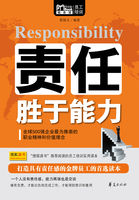"The great, the terrible, the magnificent in the fate of Becket,"says Michelet, "arises from his being charged, weak and unassisted, with the interests of the Church Universal,--a post which belonged to the Pope himself." He was still Archbishop; but his revenues were cut off, and had it not been for the bounty of Louis the King of France, who admired him and respected his cause, he might have fared as a simple monk. The Pope allowed him to excommunicate the persons who occupied his estates, but not the King himself. He feared a revolt of the English Church from papal authority, since Henry was supreme in England, and had won over to his cause the English bishops. The whole question became complicated and interesting. It was the common topic of discourse in all the castles and convents of Europe. The Pope, timid and calculating, began to fear he had supported Becket too far, and pressed upon him a reconciliation with Henry, much to the disgust of Becket, who seemed to comprehend the issue better than did the Pope; for the Pope had, in his desire to patch up the quarrel, permitted the son of Henry to be crowned by the Archbishop of York, which was not only an infringement of the privileges of the Primate, but was a blow against the spiritual power. So long as the Archbishop of Canterbury had the exclusive privilege of crowning a king, the King was dependent in a measure on the Primate, and, through him, on the Pope. At this suicidal act on the part of Alexander, Becket lost all patience, and wrote to him a letter of blended indignation and reproach. "Why," said he, "lay in my path a stumbling-block? How can you blind yourself to the wrong which Christ suffers in me and yourself? And yet you call on me, like a hireling, to be silent.
I might flourish in power and riches and pleasures, and be feared and honored of all; but since the Lord hath called me, weak and unworthy as I am, to the oversight of the English Church, I prefer proscription, exile, poverty, misery, and death, rather than traffic with the liberties of the Church."What language to a Pope! What a reproof from a subordinate! How grandly the character of Becket looms up here! I say nothing of his cause. It may have been a right or a wrong one. Who shall settle whether spiritual or temporal power should have the ascendency in the Middle Ages? I speak only of his heroism, his fidelity to his cause, his undoubted sincerity. Men do not become exiles and martyrs voluntarily, unless they are backed by a great cause. Becket may have been haughty, irascible, ambitious. Very likely. But what then? The more personal faults he had, the greater does his devotion to the interests of the Church appear, fighting as it were alone and unassisted. Undaunted, against the advice of his friends, unsupported by the Pope, he now hurls his anathemas from his retreat in France. He excommunicates the Bishop of Salisbury, and John of Oxford, and the Arch deacon of Ilchester, and the Lord Chief-Justice de Luci, and everybody who adhered to the Constitutions of Clarendon. The bishops of England remonstrate with him, and remind him of his plebeian origin and his obligations to the King. To whom he replies: "I am not indeed sprung from noble ancestors, but I would rather be the man to whom nobility of mind gives the advantages of birth than to be the degenerate issue of an illustrious family. David was taken from the sheep-fold to be a ruler of God's people, and Peter was taken from fishing to be the head of the Church. I was born under a humble roof, yet, nevertheless, God has intrusted me with the liberties of the Church, which I will guard with my latest breath."Henry now threatens to confiscate the property of all the Cistercian convents in England; and the Abbot of Pontigny, at the command of his general, is forced to drive Becket away from his sanctuary. Becket retires to Sens, sad at heart and grieved that the excommunications which he had inflicted should have been removed by the Pope. Then Louis, the King of France, made war on Henry, and took Becket under his protection. The Pope rebuked Louis for the war; but Louis retorted by telling Alexander that it was a shame for him not to give up his time-serving policy. In so doing, Louis spoke out the heart of Christendom. The Pope, at last aroused, excommunicated the Archbishop of York for crowning the son of Henry, and threatened Henry himself with an interdict, and recalled his legates. Becket also fulminated his excommunications.
There was hardly a prelate or royal chaplain in England who was not under ecclesiastical censure. The bishops began to waver. Henry had reason to fear he might lose the support of his English subjects, and Norman likewise. He could do nothing with the whole Church against him.
The King was therefore obliged to compromise. Several times before, he had sought reconciliation with his dreadful enemy; but Becket always, in his promises, fell back on the phrase, "Saving the honor of his order," or "Saving the honor of God." But now, amid the fire of excommunications, Henry was compelled to make his peace with the man he detested. He himself did not much care for the priestly thunderbolts, but his clergy and his subjects did.
The penalty of eternal fire was a dreadful fear to those who believed, as everybody then did, in the hell of which the clergy were supposed to hold the keys. This fear sustained the empire of the popes; it was the basis of sacerdotal rule in the Middle Ages.
Hence Becket was so powerful, even in exile. His greatness was in his character; his power was in his spiritual weapons.
In the hollow reconciliation at last effected between the King and the Prelate, Henry promised to confirm Becket in his powers and dignities, and molest him no more. But he haughtily refused the customary kiss of peace. Becket saw the omen; so did the King of France. The peace was inconclusive. It was a truce, not a treaty.
Both parties distrusted each other.















